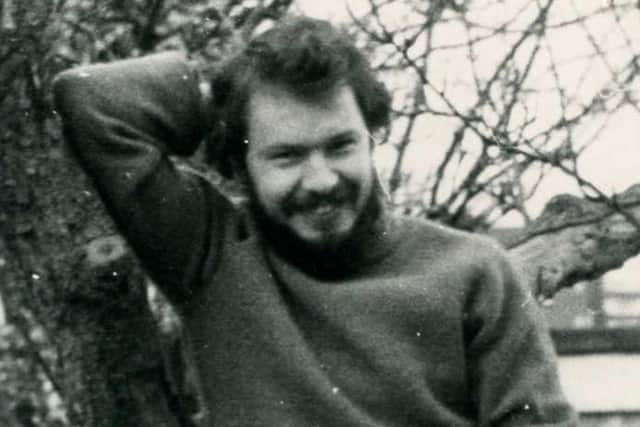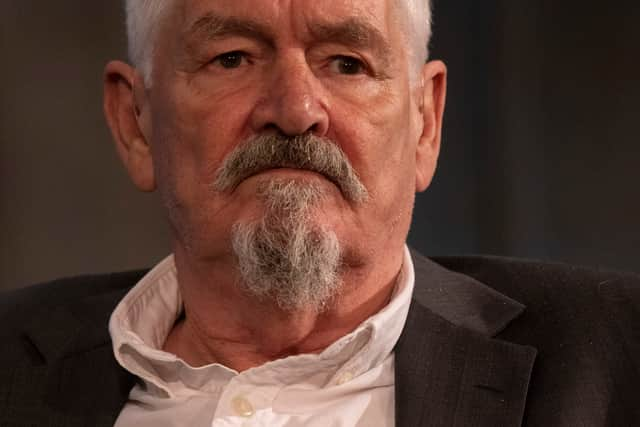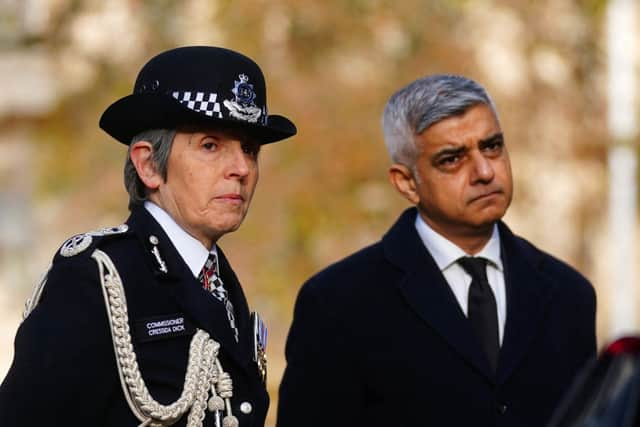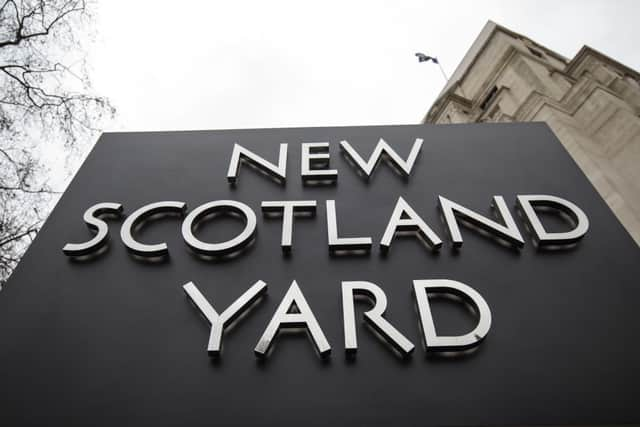Daniel Morgan: Met Police to avoid criminal charges over failures of murder inquiry, IOPC says
and live on Freeview channel 276
The Met Police is set to escape further investigation and avoid any criminal or disciplinary action into its failures surrounding the historic murder of Daniel Morgan.
The private investigator was found dead in a Sydenham pub car park with an axe in his head in March 1987.
Advertisement
Hide AdAdvertisement
Hide AdThe crime has never been solved, despite four full police investigations, several smaller inquiries and two failed prosecutions.
It is the most expensive investigation in the Met’s history, and has been plagued with accusations of police corruption, incompetence and cover-up.
Scotland Yard was previously accused of “institutional corruption” in a comprehensive report on the force’s investigation into the murder.


But now watchdog the Independent Office for Police Conduct (IOPC) has said there are “no new avenues for investigation which could now result in criminal or disciplinary proceedings”.
Advertisement
Hide AdAdvertisement
Hide AdInvestigators found former Assistant Commissioner John Yates may have breached police standards by failing to take action against ex-Det Ch Supt Dave Cook, who led the murder enquiry.
While they also said ex-Commissioner Dame Cressida Dick may have breached standards by failing to provide “full and exceptional disclosure” to the Daniel Morgan Independent Panel (DMIP).
However, due to Mr Yates’ retirement and the limited extent of Dame Cressida’s breach, the IOPC said it had “insufficient” and “no” grounds to take further action in both cases.


The family of Mr Morgan said they were “disappointed but not surprised” by the IOPC report.
Advertisement
Hide AdAdvertisement
Hide AdThey said: “It seems to have proved beyond them all to find the courage, the integrity and the will to confront the culture of corruption and cover up that remains rife in the Met.
“In the circumstances, we consider that there is no reason to expect any better from the newly appointed leadership of the Met.”
It comes after the DMIP found the force was institutionally corrupt in how it denied and concealed failings around Daniel’s murder, in a report published in June 2021.
The Met rejected the panel’s findings, but a review by a seperate police watchdog Her Majesty’s Inspectorate of Constabulary and Fire and Rescue Services (HMICFRS) found its approach to tackling corruption was “fundamentally flawed”.
Advertisement
Hide AdAdvertisement
Hide AdIn response, the Met said it was “absolutely committed” to tackling corruption and was “deeply concerned” and “urgently reviewing” its processes.
Despite six investigations and inquiries into the murder, no one has ever been convicted.


This latest report, published Wednesday, August , follows a “detailed and thorough assessment of the DMIP report”, the IOPC said.
After the DMIP report was published, IOPC investigators asked the Mayor’s Office for Policing and Crime (MOPAC), the Met and Hampshire Constabulary to look into the issues.
Advertisement
Hide AdAdvertisement
Hide AdThey assessed if there were indications former or current officers possibly breached police standards or committed criminal offences, requiring new investigations.
And the IOPC carried out the same review, considering the actions of 50 serving or ex-officers.
The watchdog asked whether:
- Any conduct matter which could be recorded had been investigated before;
- Any criminal or misconduct proceedings could now be brought;
- And if the facts of the matter had already been investigated and brought to light.
MOPAC, Hampshire Constabulary and the Met all said they would not be recording the conduct of any officer or ex-officer.
However, the IOPC said it “significantly” disagreed with the Met’s assessment on Mr Yates, who retired in 2011, in relation to former DCS Cook, whose actions led to the exclusion of key witness evidence from the 2011 trial.
Advertisement
Hide AdAdvertisement
Hide Ad

But they still said, as disciplinary proceedings could be brought, they could not take action.
The IOPC also disputed MOPAC’s assessment of Dame Cressida’s conduct, regarding disclosure to the independent panel, but still said they had no basis to take any action.
“We found that she acted with a genuine belief to protect the information but may have got the balance wrong and should have given greater priority to her duty to provide full and exceptional disclosure to the panel,” the IOPC found.
Sal Naseem, from the IOPC, said: “From the first to last investigation into Daniel Morgan’s murder there were failures to adequately challenge and investigate allegations that officers acted corruptly.
Advertisement
Hide AdAdvertisement
Hide Ad“We are acutely aware not one single officer was ever successfully prosecuted or received significant disciplinary action as a result of corruption directly connected to the murder investigations.
“The wrongs that occurred can never be put right, but it may have served as some small comfort to Mr Morgan’s family and loved ones if the officers involved had been held to account and suffered the consequences of their actions at the time.
“The circumstances of these matters must serve as a salient reminder to the Met Police and the police service more widely, of the importance of being constantly vigilant in challenging improper and corrupt behaviour swiftly, firmly and robustly.”
In their statement via lawyers from Bhatt Murphy, Daniel’s family said: “We have to ask: why did it take some 14 months for the IOPC to produce what is no more than a rather poor shadow of the findings published by the DMIP in June 2021?
Advertisement
Hide AdAdvertisement
Hide Ad“What we find here is a rather shabby exercise by the IOPC to avoid the implications of police corruption and criminality which the panel’s report compelled them to acknowledge... The IOPC shows that it suffers the very sickness within its own ranks that it purports to diagnose within the Met:
They added: “As Daniel’s family, we became aware of the police corruption and criminality at the heart of this matter within weeks of the murder. We said so then, and we had to say so repeatedly over the decades since the murder.
“Through those decades, we saw how the predecessors of the IOPC sought to avoid the implications of that police corruption and criminality, much as the IOPC seeks to do today.
“We found in the independent panel’s report an accurate reflection of our lived experience.
Advertisement
Hide AdAdvertisement
Hide Ad“We welcomed its recognition that we – and the public at large – have been failed over the decades by a culture of corruption and cover up in the Metropolitan Police: an institutionalised corruption that has permeated successive regimes and beyond to this day.
“All those responsible for oversight of the Met - the force, the mayor’s office, the Home Office and the IOPC - have chosen to duck the challenge posed to them by the panel’s report.”
Assistant Commissioner Amanda Pearson said: “We deeply regret that we have been unable to bring those responsible for the murder of Daniel Morgan to justice. We profoundly apologise.
“Corrupt individuals, including police officers, played a significant part in undermining our ability to bring offenders to justice and we recognise the impact this has had on the public’s confidence in us.
Advertisement
Hide AdAdvertisement
Hide Ad“In the years that have passed we’ve transformed how we investigate homicide, identify misconduct and drive out corruption.
“We continue to work on implementing the recommendations set out by HMICFRS’s report relating to the Daniel Morgan Independent Panel and counter-corruption in the Met.”
While Dame Cressida said: “After their assessment, the IOPC has concluded that there are not grounds for any misconduct investigation - and wouldn’t be even if I were still serving.
“This conclusion concurs with the assessment made by the Mayor’s Office for Policing and Crime many months ago.
Advertisement
Hide AdAdvertisement
Hide Ad“The IOPC recognise that everything I did was for a legitimate purpose.
“They also recognise that in providing ‘full and exceptional disclosure’ to the panel I had to fulfil other legal responsibilities - most importantly, not to disclose inappropriately information that would put lives at risk.
“I disagree with their analysis that my actions ‘may give an indication of a breach of standards of professional behaviour’ and that ‘I may have got the balance wrong’.
“In the period from September 2014 to January 2015, the record shows I and my team acted professionally, flexibly, expeditiously, diligently and with integrity in a challenging, unprecedented and complex task.
Advertisement
Hide AdAdvertisement
Hide Ad“By December 2014, the Panel had received 133,000 pages of material.
“Finally, and most importantly, I deeply regret that no one has been brought to justice for Daniel’s murder and regret everything the Met or any of its members have done which has added to the pain of Daniel’s family of losing Daniel in such terrible circumstances.”
